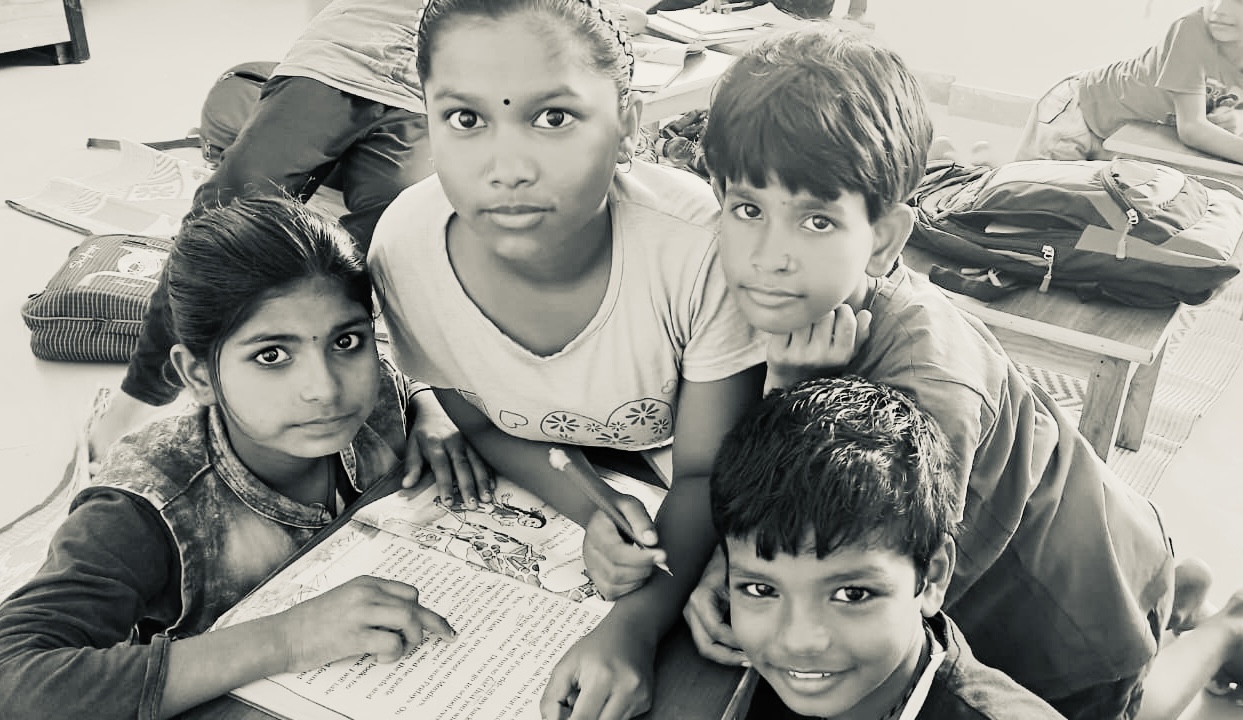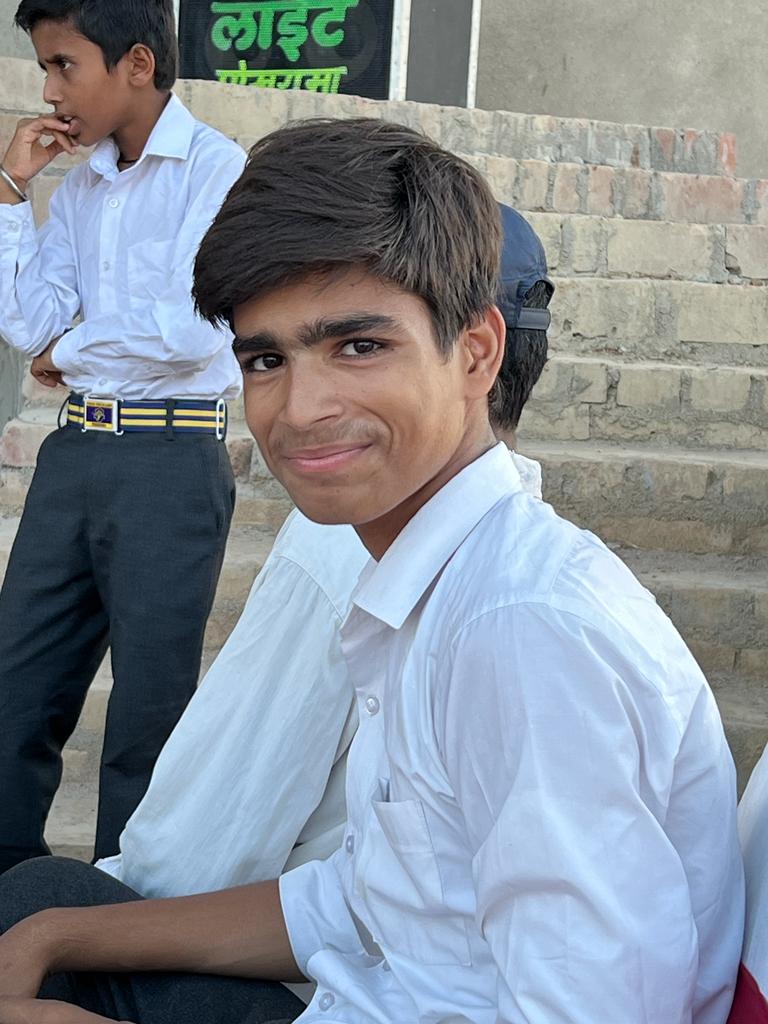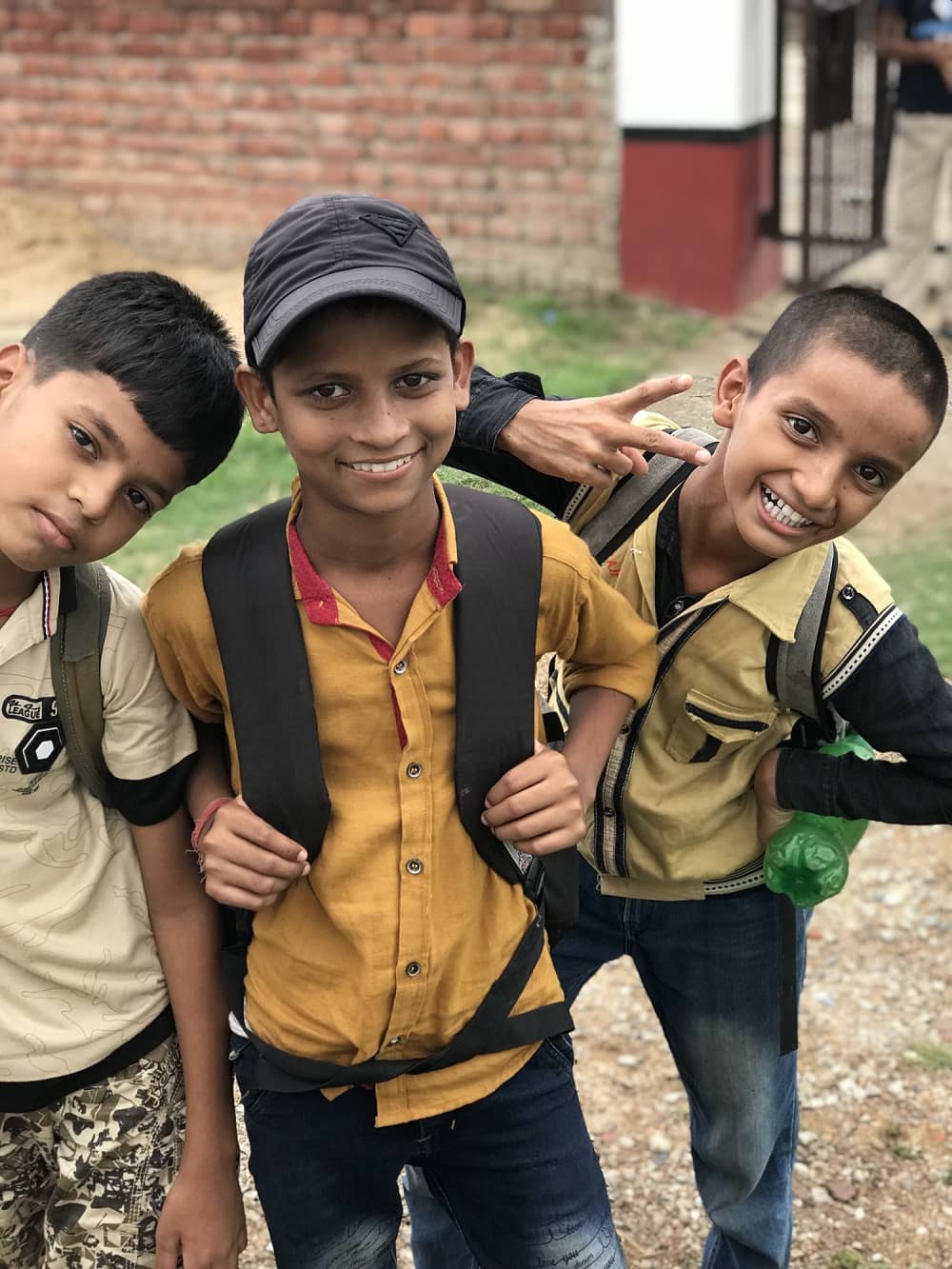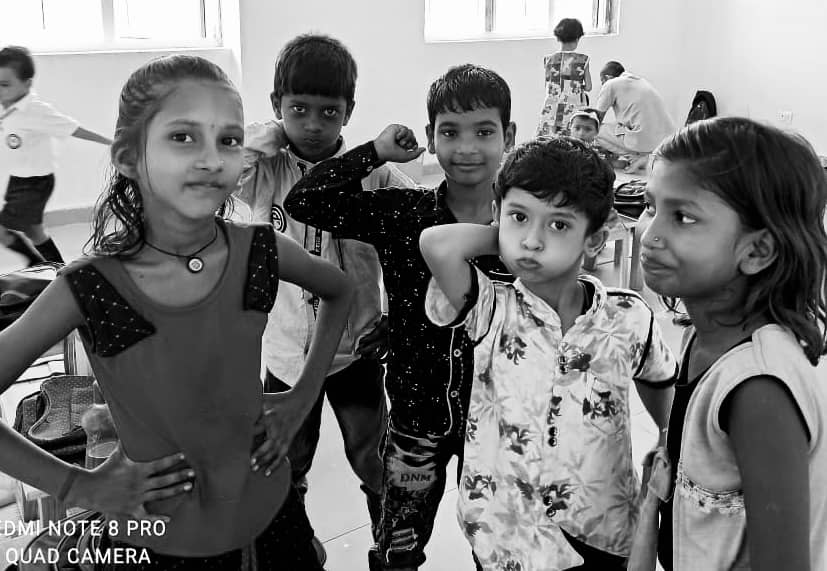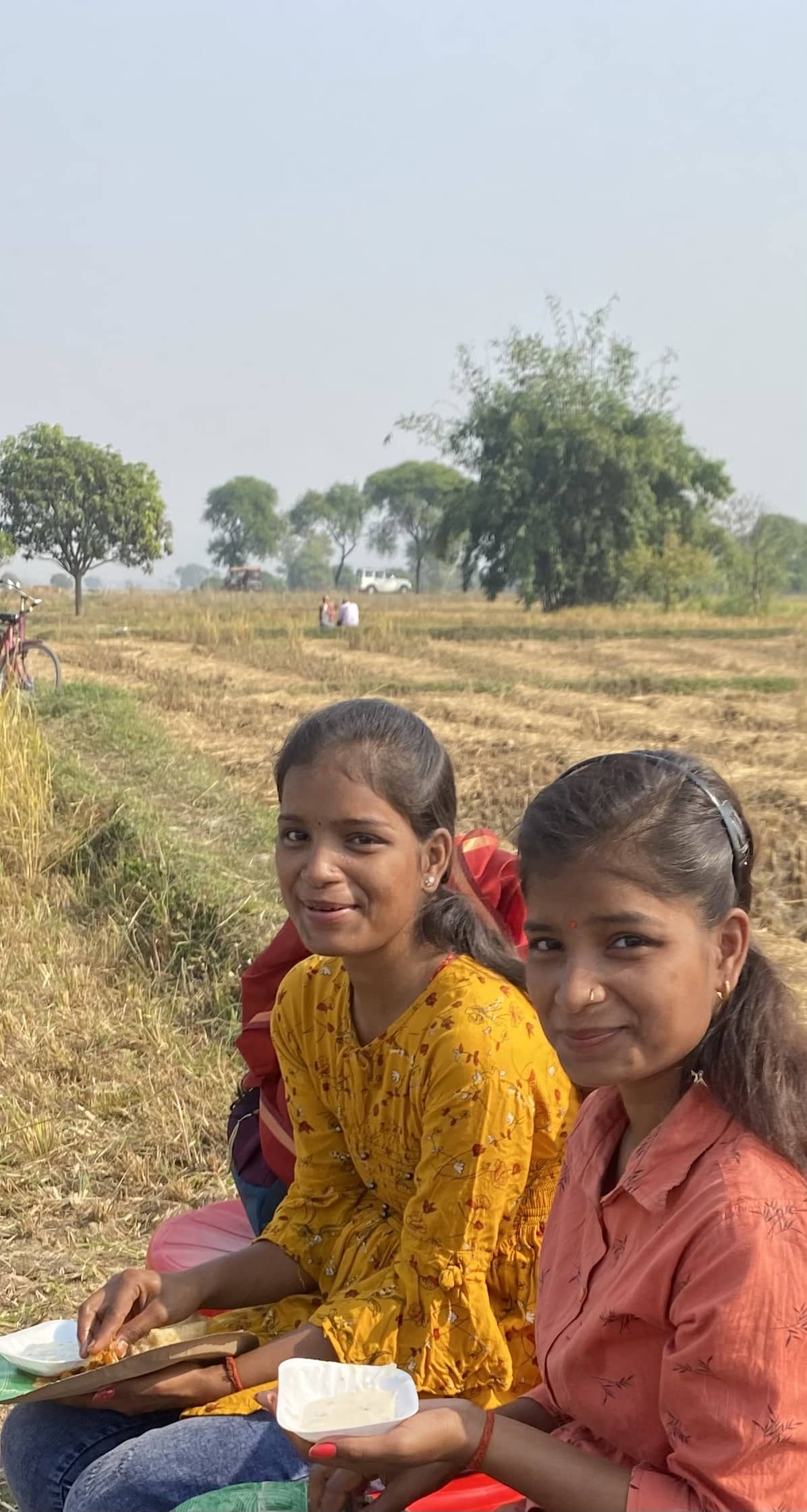When they became Pokhrama Foundation scholars in 2016, K and Ka. began to attend regular school for the first time in their lives. The twin sisters were two of six siblings (5 girls+1 boy) who in 2016 had recently lost their father, the sole breadwinner in their family. The opportunity to attend school was, to the twins, unexpected--not something they had sought, and at first not particularly welcome. K and Ka found school a daunting place. They understood little or no English--not at all unusual for most kids in and around Pokhrama. But even expressing themselves in Hindi, which most people at school could do easily, was difficult for the twins. The only language they spoke was Maghi, the dialect of Hindi spoken in their area. Unable to express themselves, the twins felt inadequate at school and under confident. Did they have any dreams for themselves? Any ambitions to be ´something´ or ´somebody´ in the future? 'No', is their emphatic reply. ´Such thoughts´, they say, ´did not even enter our minds then’.
Gradually, and especially after they joined the Pokhrama Foundation Academy, the twins began to grow in confidence. Individualized attention from teachers and the mentoring they received at PFA helped K and Ka. blossom. They participated in class discussions, put up plays and dances, wrote poems and took part in English declamation events. When the idea for a Learning Center (LC) was floated in early 2021, K and Ka. signed up to be student teachers. One took on the work of English instruction, and the other Hindi. Along with 15 other students of PFA, K and Ka. diligently ran the LC through the 2021-2022 academic year. The LC's mandate was to work with out-of-school kids (51 in the year 2021) in their community and get them school ready for the next year.
The LC student leaders worked in a focussed manner. They targeted families with girls and lower caste households where kids were not going to school. The LC student-teachers had to first convince parents to send their children to the LC--three times a week for two hours. They promised members of the community that the LC would be a professionally run place where kids could get school ready for free

